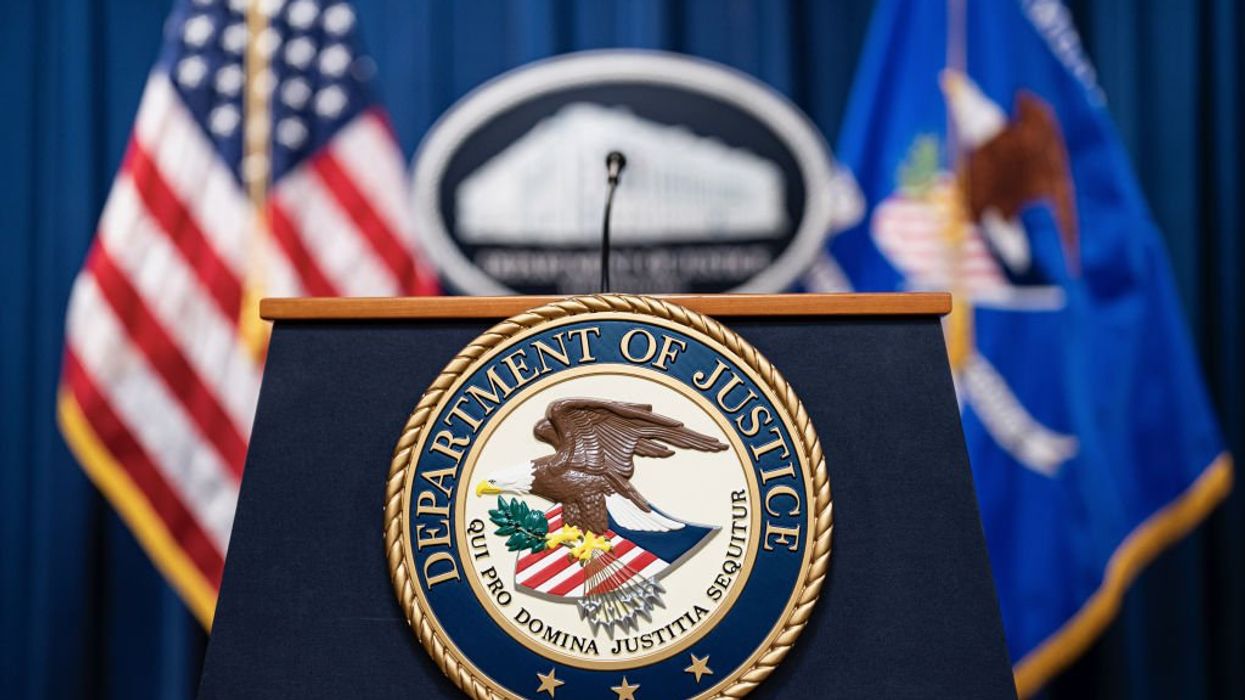
Al Drago/Bloomberg/Getty Images

A powerful and entrenched myth plagues American politics — namely, that the Department of Justice is, to some degree, “independent” of the president. The idea is plainly unconstitutional, actively harmful to the intended operation of our system of government, and a major contributor to the derangement of our common life. A critical step toward restoring sanity in our politics requires its eradication from our day-to-day practices and the people’s collective consciousness.
The myth originates from the Watergate scandal 50 years ago. For those unfamiliar with the history, a brief summary is in order.
The series of events that most contributed to the birth of the myth of the Justice Department’s “independence” began on the evening of Saturday, October 20, 1973 — the “Saturday Night Massacre.” President Richard M. Nixon ordered Attorney General Elliot L. Richardson to fire Archibald Cox, who in 1973 had been appointed as the special prosecutor to oversee the federal criminal investigation into the Watergate burglary and related crimes. Richardson refused to fire Cox and resigned. Nixon then ordered Deputy Attorney General William D. Ruckelshaus to fire Cox. Ruckelshaus likewise refused and resigned. Nixon then ordered the next most senior department official, Solicitor General Robert H. Bork, to fire Cox. Bork carried out Nixon’s order.
Nixon’s actions that night set off a firestorm, culminating in his resignation from the presidency in the face of the House of Representatives’ threat of impeachment and the Senate’s near-certain conviction, as well as the eventual passage of the Ethics in Government Act of 1978.
A section of the EGA that authorized independent counsel investigations came before the Supreme Court in 1988. In Morrison v. Olson, a 7-1 majority (Justice Anthony M. Kennedy recused himself) held that the independent counsel provisions of the law “do not violate the Appointments Clause of the Constitution, Art. II, § 2, cl. 2, or the limitations of Article III, nor do they impermissibly interfere with the President’s authority under Article II in violation of the constitutional principle of separation of powers.”
Justice Antonin Scalia, the decision’s lone dissenter, penned what is widely considered his best opinion. He famously observed the case was about:
the allocation of power among Congress, the President, and the courts in such fashion as to preserve the equilibrium the Constitution sought to establish—so that “a gradual concentration of the several powers in the same department,” Federalist No. 51, p. 321 (J. Madison), can effectively be resisted. Frequently an issue of this sort will come before the Court clad, so to speak, in sheep’s clothing: the potential of the asserted principle to effect important change in the equilibrium of power is not immediately evident, and must be discerned by a careful and perceptive analysis. But this wolf comes as a wolf.
Scalia’s basic point was that the independent counsel provisions of the EGA were void because prosecutorial power is quintessentially executive power and that because Article II of the Constitution provides that “the executive Power”—all of it—“shall be vested in a President of the United States,” any diminishment of the president’s authority is ipso facto unconstitutional.
Scalia noted that although the majority agreed with him that “the conduct of a criminal prosecution (and of an investigation to decide whether to prosecute)” is “the exercise of purely executive power” and that independent counsel provisions “deprive the President of the United States of exclusive control over the exercise of that power,” it nonetheless upheld those provisions because it did not completely eliminate the president’s control over the independent counsel—the counsel could still be fired for “good cause.”
Ultimately, Congress did not renew the independent counsel statute, which, as the Washington Post reported in June 1999, “gave rise to Kenneth W. Starr, the impeachment of President Clinton, and 20 other investigations of high-level federal officials over the past two decades.”
On both constitutional and pragmatic grounds, this was the right outcome. Scalia’s Morrison dissent was prophetic.
If the president is truly in charge of the entire executive branch (the academic literature refers to this as the “unitary executive theory”), then he must have control over all of his officers and employees. As a practical matter, of course, the president cannot personally “take Care that the Laws be faithfully executed,” as Article II, Section 3 commands, but if he cannot, when necessary, direct the actions of his subordinates — and remove them if they do not comply — then he is not really in charge.
After all, if the buck does not stop with the president, what on earth is the point of all the billions of dollars’ worth of drama we go through as a country every four years to elect one?
Deion A. Kathawa is an attorney who hails from America’s heartland. He holds a J.D. from the University of Notre Dame and a B.A. from the University of Michigan-Ann Arbor. He is a 2021 alumnus of the Claremont Institute’s John Marshall Fellowship. Subscribe to his “Sed Kontra” newsletter on Substack.
Deion A. Kathawa